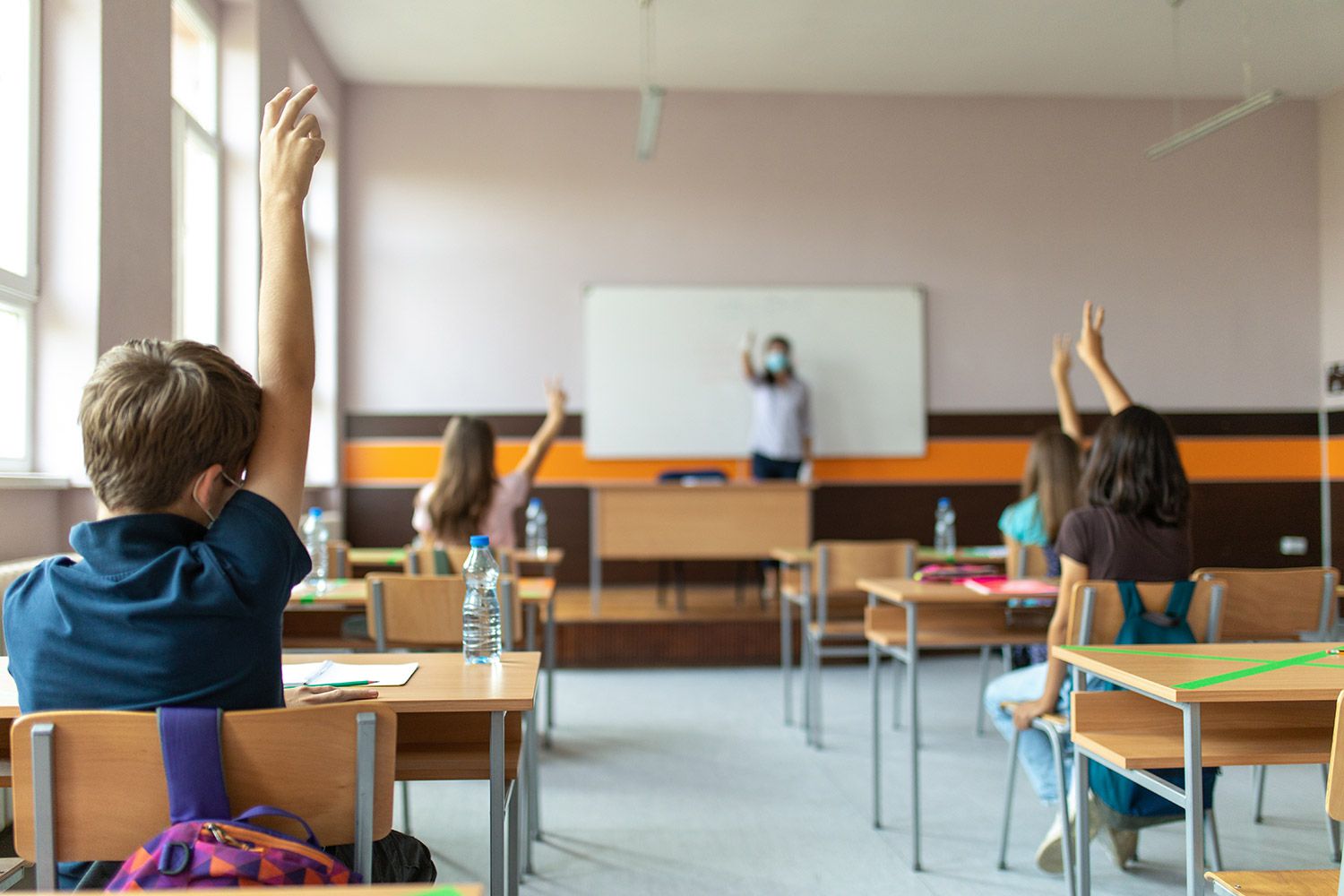
Evidence shows that K-12 schools can safely resume in-person instruction in the U.S., as long as steps are taken to continue reducing the spread of COVID-19, officials from the Centers for Disease Control and Prevention said Tuesday.
As students returned to school across the nation — and the globe — for the fall semester "there has been little evidence that schools have contributed meaningfully to increased community transmission," of COVID-19, researchers for the CDC wrote in the Journal of the American Medical Association.
According to the report, a study of COVID-19 transmission among people ages 0 to 18 in Mississippi found that attending gatherings and social functions outside one's home, as well as having visitors inside the home, was associated with increased risk of infection.
However, in-person school attendance was not.
RELATED: Biden Raises Goal to 1.5 Million Vaccine Shots a Day, Says General Public Will Have Access by Spring
"Accumulating data now suggest a path forward to maintain or return primarily or fully to in-person instructional delivery," the researchers said.
That path would include taking steps to reduce transmission of COVID-19 in schools, including wearing masks and maintaining social distancing, as well as limiting activities such as indoor sports and other extracurricular activities.
Additionally, local governments will need to take steps to ensure reduced community transmission in other areas to help prevent the virus from spreading in schools, CDC researchers said. This includes restricting indoor dining at restaurants and indoor activities at community gyms.
RELATED: 18-Year-Old Dies After Contracting COVID-19 for the Second Time
The CDC also recommended online learning and hybrid models continue to be available to keep classroom density lower and provide options for students and families who are high-risk.
K-12 schools across the U.S. closed rapidly in March 2020 and transitioned to remote learning for the remainder of the school year in response to the COVID-19 pandemic. While the CDC says the move was right in the short-term, researchers acknowledged the long-term impacts of limited in-person instruction on students' well-being.
"Closing schools could adversely affect students' academic progress, mental health, and access to essential services…" researchers wrote. "There were no simple decisions for parents, teachers, administrators, or public officials."
As information about the coronavirus pandemic rapidly changes, PEOPLE is committed to providing the most recent data in our coverage. Some of the information in this story may have changed after publication. For the latest on COVID-19, readers are encouraged to use online resources from the CDC, WHO and local public health departments. PEOPLE has partnered with GoFundMe to raise money for the COVID-19 Relief Fund, a GoFundMe.org fundraiser to support everything from frontline responders to families in need, as well as organizations helping communities. For more information or to donate, click here.
Source: Read Full Article
